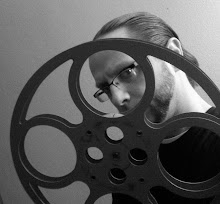In 1995, Mel Gibson’s Oscar-winning epic BRAVEHEART brought the First War of Scottish Independence to the big screen; told through the eyes of famed Scottish freedom fighter William Wallace. At the end of that film, Wallace’s fight was picked up by the heir to the unrecognized Scottish throne, Robert the Bruce, who takes center-stage in David Mackenzie’s OUTLAW KING; making his film an un-official sequel to BRAVEHEART.
After the death of William Wallace, Robert the Bruce (Chris Pine), recalls his surrender to Edward I, the King of England (Stephen Dillane), and accepts the Scottish crown. Declared an outlaw, Robert goes into hiding with his wife Elizabeth (Florence Pugh), and his loyal followers which includes vengeful warrior James Douglas (Aaron Taylor-Johnson).
It is a difficult, and dark time for Robert and Scotland. After breaking the peace treaty and declared a criminal, Robert is not only faced with the task of winning Scotland’s freedom, but staying alive while trying to raise an army. Most of the film’s time is spent with Robert trying to scrounge up enough fighting men, which is a difficult task…as most of Scotland wonders how Robert can succeed where the great and revered William Wallace failed. In-between negotiations with clan leaders, Robert must also survive assaults by the King’s Army, which threaten what little resources he has along with the safety of his family.
OUTLAW KING seems like it would be prime material for a character-driven piece, but the film is instead driven by plot. Robert himself is but a player in the whole thing, and whatever drives him internally is never explored. Where Gibson gave his William Wallace a lost love to keep him going, Mackenzie doesn’t give his Robert much of anything to go on. This decision, which perhaps was done to avoid the BRAVEHEART comparisons, leaves OUTLAW KING without much of a heart. They’re fighting for their freedom, we’re told…but it falls short of letting us know what’s so vital other than the achievement of proclaiming that they’re free.
Where OUTLAW KING comes up short in humanity, it excels on the battlefield. The battles, skirmishes, and assassinations are very well directed with glorious bloodshed and stunning camera work. The entire cast seems to have done a lot of prep work in swordfighting and it shows. Mackenzie puts together some great sequences on a grand canvas meant for the big screen, and the opening sequence, a nine-minute unbroken tracking shot…is outstanding.
Acting is equally outstanding. Chris Pine holds his Scottish accent and puts in a lot of physical work. Florence Pugh is as beautiful as she in talented and nearly steals the show. But where the show is stolen is with Aaron Taylor-Johnson, who with his shaggy hair and shaggier beard is unrecognizable and has some breathtaking scenes as he swings his mighty sword lopping off the heads of his enemies. A leap forward for this young actor.
When OUTLAW KING had its premiere at the Toronto International Film Festival, it had a run time of 137 minutes; 20 of which were cut for its general release. This is worth mentioning because it does show in the end, as the film stops abruptly just after the climactic battle (the famed Battle of Loudoun Hill, which the entire film leads up to), and we’re left with on-screen titles to wrap up important loose ends. It’s an annoyance, not a deal-breaker, but it does make the film seem smaller than it wants to be. OUTLAW KING is still worth its crown, despite a few kinks in the armor.
BOTTOM LINE: See it


No comments:
Post a Comment
A few rules:
1. Personal attacks not tolerated.
2. Haters welcome, if you can justify it.
3. Swearing is goddamn OK.